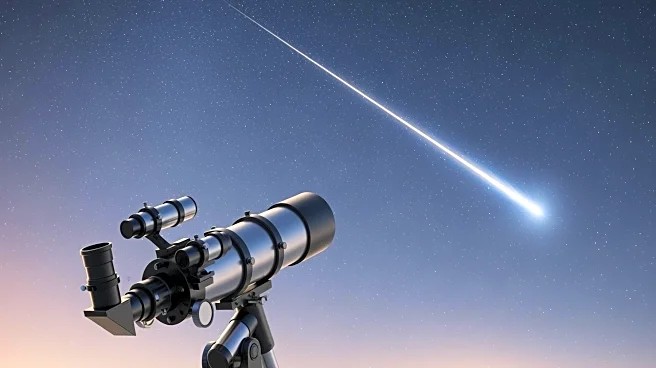What's Happening?
Astronomers have identified a new asteroid, 2025 SC79, which is the second fastest known asteroid in the solar system. Discovered by Carnegie astronomer Scott Sheppard, the asteroid orbits the sun in just
128 days, placing it within Venus's orbit. Despite its speed, 2025 SC79 poses no immediate threat to Earth. The discovery was confirmed by the NSF's Gemini Observatory and Carnegie Science's Magellan Telescopes. The asteroid's detection underscores the difficulty of spotting asteroids that are close to the sun, as they can only be observed during twilight. This discovery was shared with the astronomy community by the Minor Planet Center.
Why It's Important?
The discovery of 2025 SC79 is significant as it highlights the challenges in detecting asteroids that could potentially pose a threat to Earth. Asteroids that orbit close to the sun are difficult to detect, making them potentially dangerous if they approach Earth. Understanding these asteroids' orbits and compositions can help scientists develop strategies to protect the planet. Additionally, studying such asteroids can provide insights into the history and evolution of the solar system. The research is supported by NASA and involves using advanced telescopes to track these elusive space rocks.
What's Next?
Further observations of 2025 SC79 will be necessary to understand its composition and how it withstands the sun's intense heat. These studies will also explore the asteroid's origins and how gravitational forces influence its orbit. Such research could enhance our understanding of asteroid dynamics and improve planetary defense strategies. As the asteroid is currently behind the sun from Earth's perspective, follow-up observations will have to wait until it becomes visible again.









